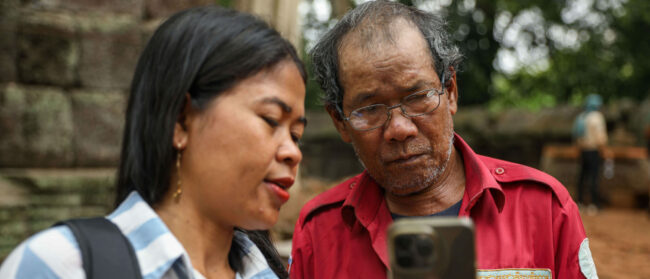Jakarta is frequently described as ‘the Twitter capital of the world’. Although some sneeringly suggest this is due to the sheer amount of time that Jakartans spend stuck in traffic – 22 days per year, according to new research – not to mention the lengthy queues that seem mandatory when visiting a government office.
But Twitter’s popularity across Indonesia is not as innocent as it seems. Harassment and bullying are widespread and directed especially at women and other minorities – as they are throughout the rest of the world. What is perhaps more surprising about Indonesian-language Twitter is the amount of pornography available, and the ease with which it can be accessed.
In early November, the Indonesian government suggested it would ban WhatsApp after discovering pornographic GIFs were available through third-party platforms. It quickly backed down after public outcry. Conversely, the government has never targeted Twitter for a similar ban, but it’s certainly not because the platform handles porn well – users frequently struggle for weeks to report accounts before Twitter responds and finally shuts them down.
Indonesian law forbids both the creation and distribution of pornographic material, and the definition of what constitutes pornography is broad. People appearing in homemade sex tapes and victims of revenge porn can be charged under the 2006 Pornography Law; even Firza Husein, the girlfriend of Islamic Defenders’ Front leader Rizieq Shihab, is currently under investigation for sending nude photographs of herself to Shihab. No one can escape this law.
“Twitter searches for slang words such as kontol (penis) or memek (vagina) throw up thousands of results – so many that I am embarrassed to do a test search in a café”
Despite this, Twitter searches for slang words such as kontol (penis) or memek (vagina) throw up thousands of results – so many that I am embarrassed to do a test search in a café, and resort to using my mobile phone instead, hiding it in my lap. Some accounts have hundreds of thousands of followers; one of the first that pops up has 117,000 followers and a stream of nude photographs and pornographic videos, including what I can only assume is a new fetish sub-genre: women wearing headscarves performing explicit sexual acts. Nothing is blurred or censored, and some videos are up to five minutes in length.
This is pornography for the masses. When I first moved to Indonesia in 2011, male friends casually offered each other their hard drives of pornography – gigabytes and gigabytes of videos and photos, ripped from VCDs or downloaded via slow internet connections. Now, things are easier; smartphones are ubiquitous, and fast 4G mobile data connections are cheap – just $7 gets you 5GB of data to use within 30 days. That’s a lot of porn, especially when it’s low-resolution like the stuff on Twitter.
Compared to social media’s other big guns, Twitter is comparatively slow to deal with pornographic content. Five years ago, Indonesian-language Facebook was drowning in it, with Instagram close behind. Those two platforms have upped their game and seem to take reports more seriously than Twitter, which is not only slow to respond but seems to lack the manpower in Indonesia to crack down on explicit content.
Even when accounts are reported and taken down, new accounts emerge within minutes to replace them. Hashtags abound, ensuring you can scroll for hours without running out of porn. What is unique is that the pornographisation of Twitter seems to be an Indonesia-specific trend. For example, Blued is a Grindr-esque app used across Asia, yet on Twitter, #blued seems to throw up only screen captures in the Indonesian language. Screenshots from non-Indonesian users are rare. A gay friend living in Bali tells me that Twitter is the most common porn source for his friends.
Ultimately, the popularity of Twitter pornography is simply the result of what amounts to a national ban on any content with even vaguely sexual overtones. Beauty pageant contestants have had their cleavage blurred out on TV, sex scenes are cut out of blockbuster films and takers of nude selfies can be prosecuted. Is it any wonder that people have turned to under-managed platforms such as Twitter?
Thanks to cheap mobile data, Twitter’s structure means that anyone can access pornographic material, including children and sex offenders. The platform must step up and begin combatting the spread of pornography across its users’ accounts in Indonesia. It must not only improve how quickly it responds to reports but also its own management of content through actively searching for pornographic material and closing down accounts. Working with the National Police’s Cybercrime Unit would also be a positive move.
Twitter has long claimed Indonesia as its prodigious child for its high level of uptake; now it’s time to repay the favour by listening to users’ complaints and removing pornographic content.
Kate Walton is a writer and the founder of Jakarta Feminist Discussion Group, as well as one of the organisers of Women’s March Jakarta and Feminist Fest. Kate has a master’s in human rights from Curtin University, Australia, and currently lives in Jakarta.


